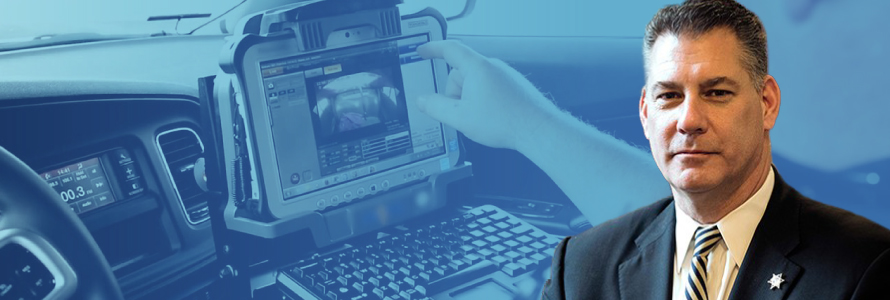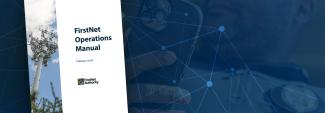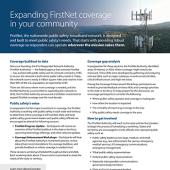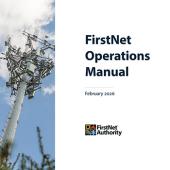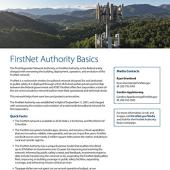We recently sat down with Sheriff Peter Koutoujian who leads the Middlesex Sheriff’s Office in Massachusetts. Sheriff Koutoujian was appointed in October by the Secretary of Commerce to serve on the FirstNet Authority Board. We talked to the sheriff about his approach to law enforcement, his views on FirstNet’s value, and what he hopes to accomplish on the board.
Why did you decide to become involved with the FirstNet Authority?
I've always been impressed with the mission of the FirstNet Authority. Creating a uniform, high-capacity communications system for first responders is crucial. And the only time we think about it is when we are in crisis, and by then it's too late. FirstNet was born out of the tragedy of 9/11. The difficulties in communications experienced that day would repeat themselves far too many times, including here in Massachusetts during the Boston Marathon bombings.
The impact of FirstNet is revolutionizing public safety communications, making it safer for officers, as well as the public. That is why I am proud to be a part of the FirstNet Authority Board.
What excites you about the future of FirstNet?
It’s exciting to see the incubation of so many ideas at the FirstNet Authority. All too often we leave it for the private sector to create, initiate, and innovate. And here we're doing it with a public-private partnership. The federal government and our partner AT&T helped to build FirstNet to this point.
For example, the addition of Z-axis technology is something I can see the practical benefits of, and I love hearing about the technological innovations behind it. What is valuable is that these innovations are discovered and put out for the public good. I love the fact that we innovate and bring it directly to FirstNet subscribers for the public's and first responders’ benefit.
What drew you to law enforcement? Give us a little background on your career.
I come from a background that's not as traditional as most other sheriffs or police chiefs. I went to New England School of Law here in Boston. I served as public defender and then as a prosecutor for four years. I taught at law schools, and I went on to get a master’s in public administration from the Harvard Kennedy School here in Cambridge. I also served for 14 years in the Massachusetts House of Representatives during which I chaired the Committee on Health Care.
All this diverse experience informs my work as sheriff. I often say the sheriff’s offices sit at the intersection of public health and public safety. The population we often engage with, whether on patrol or in our jails, frequently come to us in behavioral health crisis. It may be a substance use issue, it may be a mental health one. Regardless, our job is to ensure their safety and the safety of those around them. It is a difficult but unbelievably fulfilling job.
You’re doing unique things at your agency. What are some highlights for you?
The Middlesex Sheriff’s Office has several first-in-the-nation programs that are now being replicated throughout the country. We launched a young adult offender program, the first of its kind in a jail in the country. Our housing unit for military veterans is the first in the state and one of the few truly therapeutic programs in the country. We started our medication assisted treatment program when that was uncommon in a correctional environment, and it became a national model for how to do it successfully.
Using data and science to improve public health and public safety outcomes is important to me. I know that the FirstNet Authority is committed to studying how to effectively evolve the network and learning what public safety needs from broadband. That is part of what drew me to the organization. I hope to help with that culture and collection of data during my time on the board.
What do you hope to accomplish during your tenure on the board?
Since my career path has not been traditional, I think that my experience can be uniquely beneficial. First, I can help with how we communicate with public safety and first responders. Law enforcement has its own style of communicating. I want to help us break into that space and to do so with a focus on operational security and efficiency, which is what first responders are looking for.
The next stage is truly operationalizing the effort. That means getting local sheriffs, police chiefs, fire chiefs, and EMS on board, informing them about this opportunity, and letting them know that FirstNet is not just AT&T telecommunications service, but a public-private opportunity.
To learn more about how FirstNet is helping public safety and law enforcement to leverage innovative public safety communications, sign up for the law enforcement newsletter.


